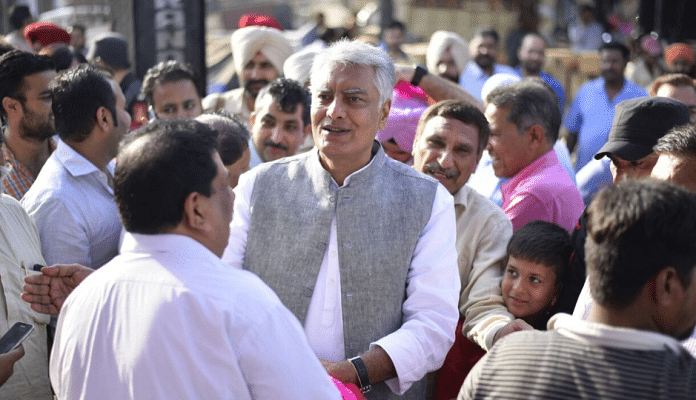The BJP state unit was faction-ridden, did not have any local leader and over-relied on tainted Akali leaders to win the Gurdaspur bypoll.
By handing a defeat to the BJP in the prestigious Lok Sabha bypoll in Gurdaspur, Punjab has once again gone against the national electoral trend. The victory of Congress Party candidate Sunil Jakhar was on expected lines. In recent decades, bypolls in the state have always been in favour of the party in power. The low voter turnout of 56 per cent ( it was 70 per cent in 2014) in the bypoll was also in line with the trend.
However, what has drawn attention is the margin of the victory as Jakhar defeated BJP candidate Swaran Salaria by a margin of nearly two lakh votes. This, in a constituency held thrice in the past by BJP candidate Vinod Khanna. The actor’s wife was denied a party ticket despite popular demand.
How does one explain such a massive win for a candidate who lost the assembly elections barely six months ago? Is the verdict indicative of a positive mandate for the incumbent state government or/and is this an early indication of the beginning of an end for the uninterrupted electoral victory march (with minor hiccups like in Bihar) for the Modi-Shah-led BJP since 2014?
The country is reeling from an economic slide that is being blamed on ill-conceived economic policies like demonetisation and the perceived neglect of agricultural sector by pro-market BJP regime. To what extent can the victory be attributed to the leadership of Captain Amarinder Singh, who after the 2017 election has emerged as state satrap reminiscent of Nehruvian India, and had handpicked Jakhar instead of the wife of former state party president Pratap Singh Bajwa? Is the verdict an affirmation of the fact that the electoral fortune of the BJP has been dependent on its long term electoral ally, the Akali Dal?
One can possibly answer all these questions in the affirmative. But then, it would be a little overstretched to read too much in what is merely a bypoll even if the victory margin is unprecedented in a state that has always witnessed close electoral battles.
It would be equally foolhardy to anticipate a national impact of this particular verdict. similarly, the perceived strain in relations between the BJP’s state unit and the Akali Dal is also not expected to reach breaking point. The Akali leadership has attempted to make a comeback blaming Captain Amarinder Singh’s government for its failure to fulfil the poll promises of waiving the farmers’ loans or generating employment. This did not work for them.
It would be much more realistic to refer to the local factors such as the candidates in the fray. Salaria, with his tainted image and tagged as an outsider, was a poor choice to pick as the BJP’s candidate to take on Jakhar. The Congress candidate has long enjoyed a clean image and has a very impressive record as a legislator when he led the party in the last Vidhan Sabha.
What also did not help the BJP was that it was faction-ridden and did not have any leader with state-wide support. BJP over-relied on the campaign by tainted Akali leaders like Vikram Singh Majithia and Sukhbir Badal. The latter, despite being in state politics for almost two decades, is still not preferred over his ageing father as the party’s chief ministerial candidate. The spirited campaign by their bête noir Navjot Singh Sidhu also proved decisive in turning the contest into a one-sided affair.
In a state where electoral politics is driven by clientelism and populism, the electorate have every reason to vote for the party in power in the state. Another factor that could have gone against the BJP in the agrarian state is its image of being pro-market at a time when the farming sector remains neglected.
As far the Aam Aadmi Party candidate’s loss is concerned, it once again confirms the fact that the AAP’s influence remains confined to Malwa region. The purge of the ‘original’ leaders of the party by Kejriwal-led Delhi-based leadership has continued to hurt the party in the state.
And of course, the verdict does not certify the success of the six-month Congress rule. That would be too much to read in a solitary win.
Ashutosh Kumar is a Professor in the Department of Political Science, Chandigarh.



